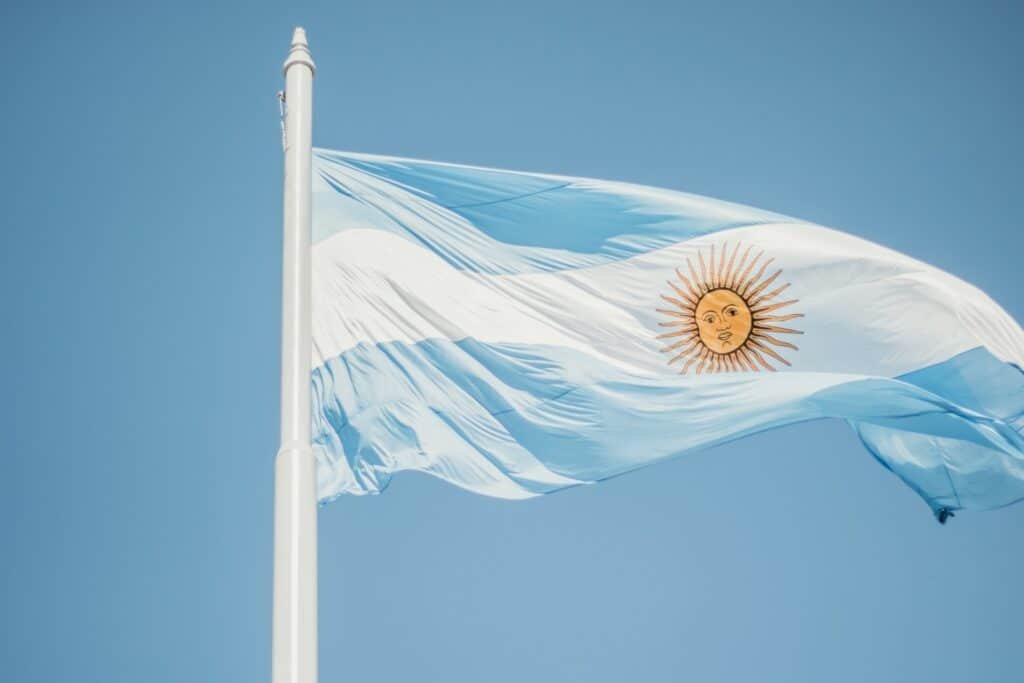
More than 100.000 people participated in “cannabis manifestation” in Argentina in 2019.
One more country takes a step forward towards the legalization of marijuana. Now, the Argentinean government has legalized the home cultivation of cannabis for medical use. As well as the commercialization of medical cannabis products in pharmacies.
But we are not talking of an abrupt change here, however. The Latin American country had already been considering marijuana as a potential medical treatment for a few years now. The new measure consists of an update of a normative that was released in March 2017 which approved the legalization of the medical use of marijuana. Although it prohibited the cultivation of the plant and the possession of cannabis seeds.
The new decree, which was signed by the country’s president Alberto Fernandez seeks “timely, safe, inclusive and protective access for those who need to use cannabis as a therapeutic tool”.
By registering in a network named “Programa Nacional de Cannabis” (REPROCANN) which consists of cultivators, users, researchers, and patients, people can now quickly access oils and cannabis-based topicals directly in pharmacies. The program is not brand new however, it was created in 2017 although it was not yet operative. And while the medical cannabis law has been dictated already 3 years ago. Patients and their relatives in need of cannabis-based treatments have been claiming their right to produce their own specific oil ever since, which they still did even though it was a matter of penalization.
The social collective Mamá Cultiva (Mom Cultivates), which is an active protestant and representative on this subject, posted their thoughts on the update of the law: “We cry of joy today because we started this fight for our kids […] We’re a big family, battling for the same right, the right to quality of life. Now we’ll cultivate the medicine without fear […] We aren’t criminals”
In Argentina, it is due to organizations like this, which gather enormous amounts of people who want to make their voices heard. That the government can see a clear picture of the people’s thoughts and demands. It is then up to them to hear or ignore them. Although they can be quite hard to ignore with all the organized street manifestations taking place in Buenos Aires’ most transited avenues.
From a political point of view, this new law update could actually help attract more allies to the country’s current government. Argentina is well known for its notorious polarized opinions when it comes to politics. For most people there, it’s either black or white, with no greys in between. And after the coronavirus pandemic, some discrepancies arose on some of Alberto Fernandez’s decisions concerning the environment. And animal activism as well, the government lost a big part of their supporting community. Therefore, the new measure on cannabis could in fact be a strategy to earn back people’s trust, as well as boost the country’s economy, which, as well as in the rest of the world, was strongly shaken by the coronavirus pandemic.
Now, the new normative hasn’t only authorized the importation of medical cannabis products. Which was already allowed but only for refractory epilepsies, but it also permits “the acquisition of medical specialities produced in the country or buying magisterial formulations elaborated by authorized pharmacies”. Doctors and medical professionals can now prescribe patients with medical marijuana to treat any condition as long as there is scientific evidence backing up that cannabis in fact helps to treat it.
The patients will be able to buy cannabis seeds from different breeders like Fast Buds for instance, grow their own medical plants at home and consume the product without any legal restriction.
Furthermore, the government will impulse the public production of cannabis for medical purposes as well. And is determined to guarantee access to treatments for uninsured patients who don’t count on prepaid medicine or union medical coverage. This way, not only will they improve the medical attention in the country but they will impulse a new industry and most likely obtain positive profit from it.
In the meantime, when it comes to the criminalization of drug use, the waters aren’t exactly clear. Back in 2009, the supreme court stated that it is unconstitutional to penalize grown people for possession of drugs for personal use in the privacy of their own homes. However, this ruling was never set into motion and the police force continues to go after arrest. And prosecute drug users, with a particular interest in deprived communities.
This new measure makes the future of the region more promising in terms of the cannabis industry. It was in 2013 when the first country in Latin America gave the green light to the home cultivation of marijuana for personal use in Uruguay. Ever since the legalization, the Uruguayan country has been creating cultivation clubs to plant in a cooperative form. Cannabis started commercializing like in the old days in pharmacies, for both medical and recreational use.
After Uruguay took the first step in this direction, many South American countries’ interest awoke in the subject and began moving closer to the legalization of cannabis.
To sum up, the new measure that Argentina gave rise to is just one more indicator that thoughts and postures around cannabis are changing all around the globe. What was once a matter of taboo, almost as bad as saying ‘Voldemort’ in Harry Potter, is now something we surround ourselves with more often than not. Once the younger generations grow up further into essential roles in society, most likely these fresher ways of thinking will change quite a few things about the world we are living in.
